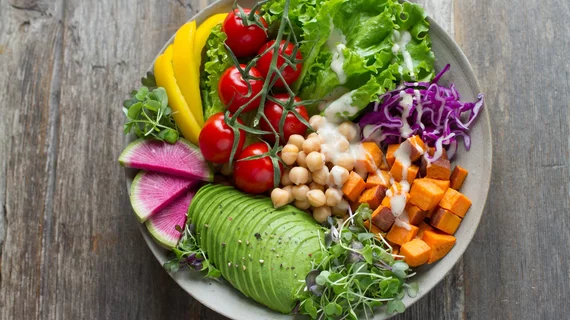Machine learning identifies cancer-busting ‘hyperfoods’
Several plant-based foods readily available in supermarkets contain bioactive molecules that could not only prevent cancer but also treat it, accomplishing the latter with protective mechanisms similar to those activated by existing clinical therapies.
So found researchers at Imperial College London who combined machine learning with crowdsourced computing power to identify foods with the strongest cancer-beating molecules.
Rising to the top were tea, grapes, carrots, coriander, oranges, dill, cabbage and wild celery.
Scientific Reports published the study July 3.
Kirill Veselkov, PhD, and colleagues used an algorithm to replicate the effects of nearly 2,000 anticancer drugs, including 199 specifically designated as such, on human biological processes.
After validating their model—it predicted anti-cancer therapeutics with classification accuracy of 84% to 90%—the team fed it a sprawling database of close to 7,962 bioactive molecules present in foods.
With this, the model predicted 110 cancer-beating molecules would behave similarly to drug therapies from various chemical classes.
These 110 molecules formed the basis of a resulting “food map” showing the plant-based consumables that contain the strongest potential for use in cancer prevention and treatment.
In their discussion, Veselkov et al. state their methodology is “restricted to cancer and will be applicable to other health conditions. Moreover, it will pave the way to the future of hyperfoods and gastronomic medicine, encouraging the introduction of personalized ‘food passports’ to provide nutritious, tailored and therapeutically functional foods for every individual in order to benefit the wider population.”
Of note, the project tapped the power of a crowdsourced app, DreamLab, which draws surplus processing power from users’ smartphones to support cancer research.

